This store with nothing for sale wants to help you take control of your online privacy
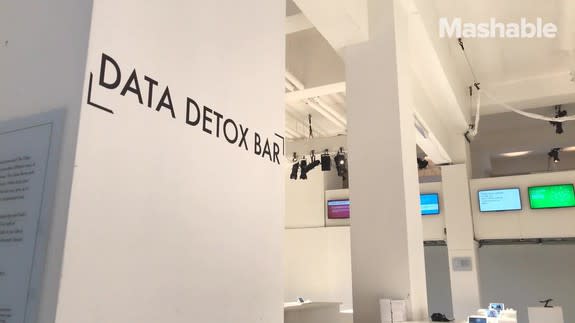
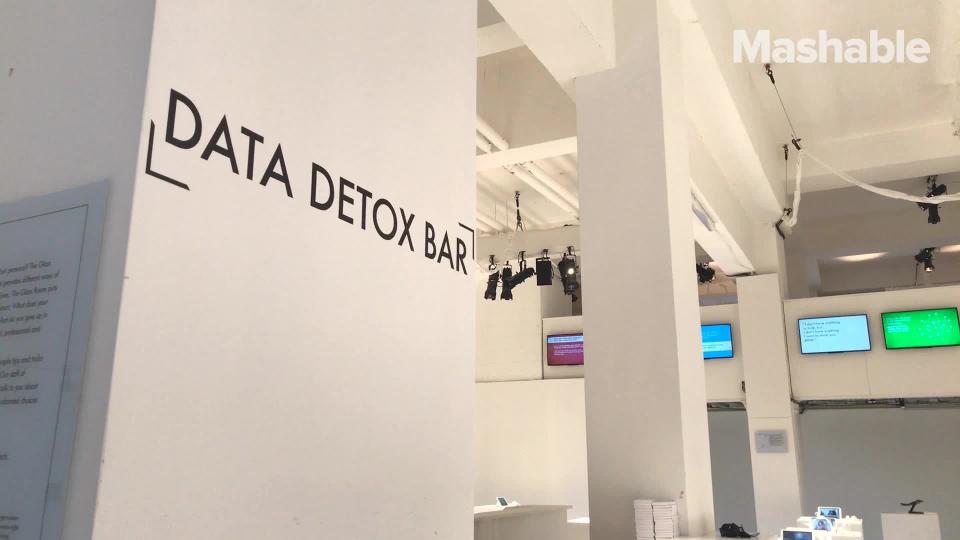
There's a lot of high-brow, abstract talk about privacy and personal data.
SEE ALSO: Moscow's facial recognition CCTV network is the biggest example of surveillance society yet
But when it comes to our personal experience with it, all we usually get is a long, boring, overlooked list of conditions that nobody reads before signing up to Facebook or other social media giants. Do we truly understand what part of our digital footprint is owned by these companies?
That's why the Glass Room, which just opened in central London, is important.
At first sight, it's just another all-white, sleek, shiny, minimalist pop-up tech store, with massive windows overlooking central London and interactive handsets methodically placed in tactical positions. It bears more than a fleeting resemblance to a famous retail store, which shall remain nameless.
Except that once you get inside and start checking out the "products", you're left amused at best, desperately baffled at worst.
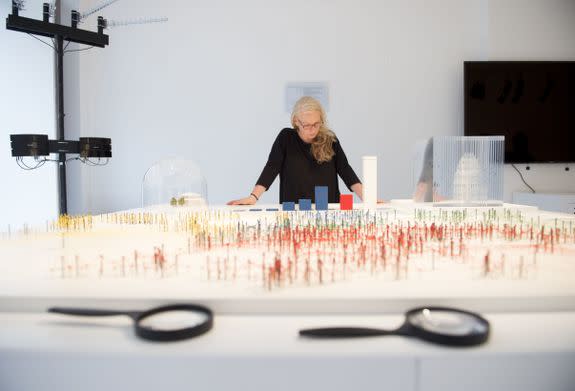
Image: David Mirzoeff
Mozilla and Tactical Tech, the organisers of The Glass Room, call it "a tech store with a twist", and its declared purpose is to make the intangible — the theoretical, philosophical world of privacy, data and digital life — tangible in a playful, cheeky manner, so you can make better, informed decisions about your data and the way they interact with big tech companies.
"The world of privacy and security is actually very difficult to help individuals understand in a tangible way," Jascha Kaykas-Wolff, Chief Marketing Officer at Mozilla, said.
"What happens when they go online and choose to interact with different kinds of businesses? Glass Room is a series of artists' interventions to help you physically feel, touch, and see the way that your data works for different companies."
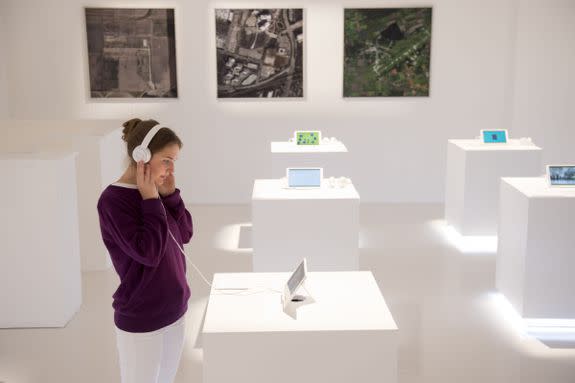
Image: David Mirzoeff
Most of the items exhibited are interactive, from Where The F**k was I?, a book listing the artist's locations from June 2010 to April 2011 as recorded by his Apple's iPhone, to "Smell Dating", a new way to make connections that matches single people based on their olfactory compatibility.
Some of the "products" have a dark shroud of creepiness. "Data Production Labour", from artist and activist Manuel Beltran, investigates how the data we produce is a form of productive labour.
You simply place your phone on the mat and scroll Facebook, while a sensor records your hand movements and an emotion-recognition software tracks your facial expressions to see your response to what you see. The result is checked against the minimum wage in London.
Facial recognition also features in "Megapixel", which is a clever, intuitive way into the dominant debate on AI and privacy. The visitor simply walks up to the front of it and the system starts scanning your face and attempts to match it against a publicly accessible database of photos.
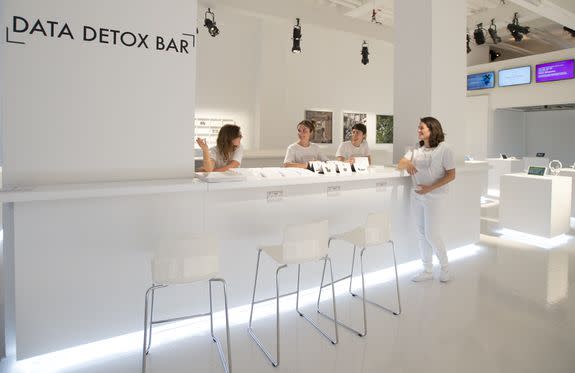
Image: David Mirzoeff
"The database that Megapixel uses to train for its facial recognition is available through common licensing, off of Flickr. So what you and I may not know is when you choose to upload your information into a place that we like because it offers a good service, that data is made available to other other businesses that can choose to do whatever they want," Kaykas-Wolff said.
A part of The Glass Room is dedicated to the big tech companies — Google, with a piece showing Alphabet's massive network of acquisitions; Facebook, with a model showing Mark Zuckerberg's house; Microsoft, with a remote-control fertility chip developed by the Bill and Melinda Gates Foundation.
At the end of your visit, a group of white-clad volunteers called "Ingenious" introduce you to a cheeky tool: the Data Detox Kit, a programme in eight prescribed steps — one for each day — to take back control of your data online and have a healthier relationship with the businesses running your life.
"What we don't understand as a mass of people around the world is how we can individually take control of our data," Kaykas-Wolff said. "With Glass Room, they'll understand their relationship into contributing to a healthier internet choosing to do something as simple as let's say shutting off location services on your phone."
WATCH: Someone created a storm lamp that produces lightning every time Trump tweets


 Yahoo News
Yahoo News 
